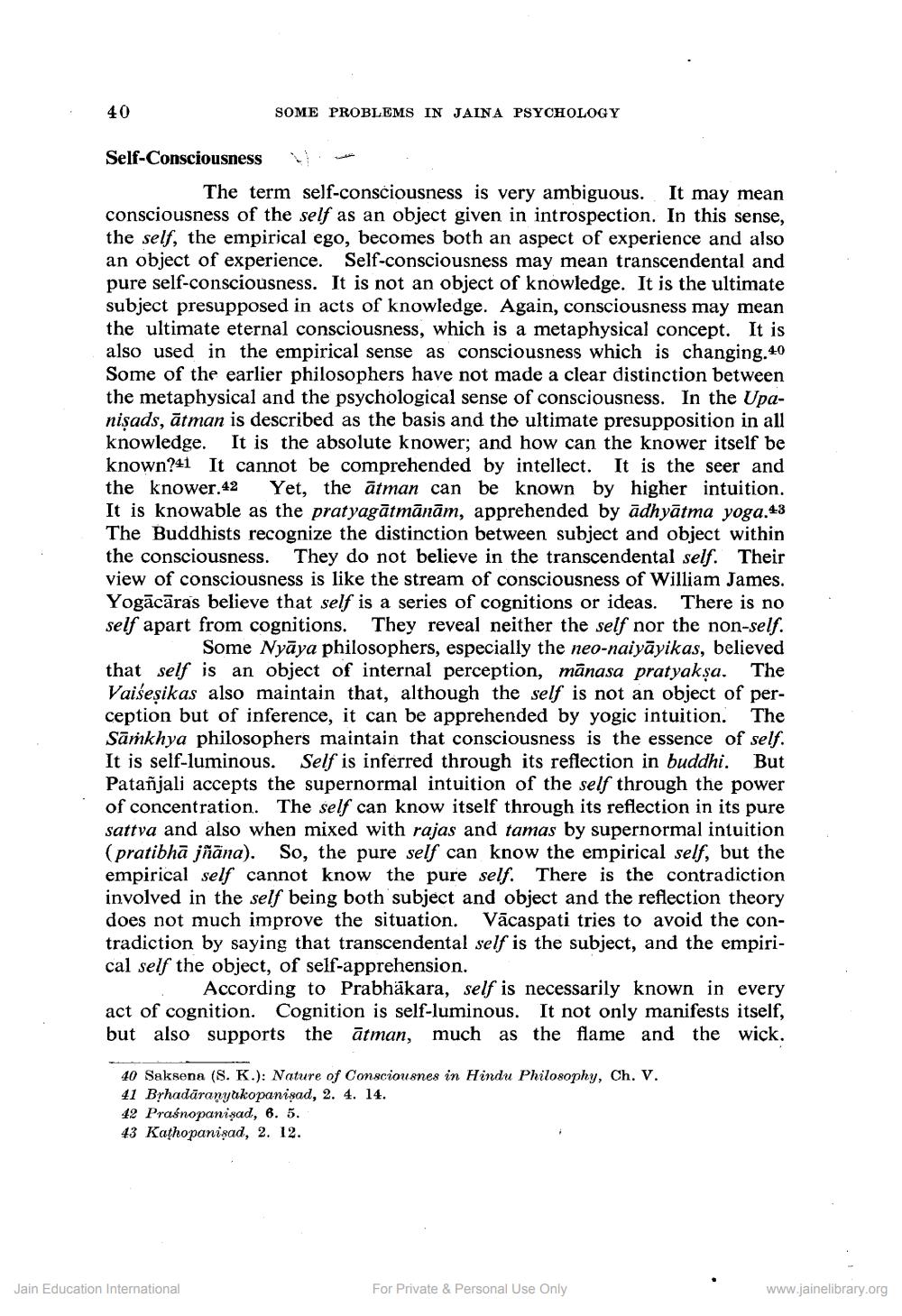________________
40
SOME PROBLEMS IN JAINA PSYCHOLOGY
Self-Consciousness
The term self-consciousness is very ambiguous. It may mean consciousness of the self as an object given in introspection. In this sense, the self, the empirical ego, becomes both an aspect of experience and also an object of experience. Self-consciousness may mean transcendental and pure self-consciousness. It is not an object of knowledge. It is the ultimate subject presupposed in acts of knowledge. Again, consciousness may mean the ultimate eternal consciousness, which is a metaphysical concept. It is also used in the empirical sense as consciousness which is changing. 40 Some of the earlier philosophers have not made a clear distinction between the metaphysical and the psychological sense of consciousness. In the Upanişads, ātman is described as the basis and the ultimate presupposition in all knowledge. It is the absolute knower; and how can the knower itself be known?41 It cannot be comprehended by intellect. It is the seer and the knower.42 Yet, the ātman can be known by higher intuition. It is knowable as the pratyagātmānām, apprehended by ādhyātma yoga.43 The Buddhists recognize the distinction between subject and object within the consciousness. They do not believe in the transcendental self. Their view of consciousness is like the stream of consciousness of William James. Yogācāras believe that self is a series of cognitions or ideas. There is no self apart from cognitions. They reveal neither the self nor the non-self.
Some Nyāya philosophers, especially the neo-naiyāyikas, believed that self is an object of internal perception, mānasa pratyakşa. The Vaisesikas also maintain that, although the self is not an object of perception but of inference, it can be apprehended by yogic intuition. The Sāmkhya philosophers maintain that consciousness is the essence of self. It is self-luminous. Self is inferred through its reflection in buddhi. But Patañjali accepts the supernormal intuition of the self through the power of concentration. The self can know itself through its reflection in its pure sattva and also when mixed with rajas and tamas by supernormal intuition (pratibhā jñāna). So, the pure self can know the empirical self, but the empirical self cannot know the pure self. There is the contradiction involved in the self being both subject and object and the reflection theory does not much improve the situation. Vācaspati tries to avoid the contradiction by saying that transcendental self is the subject, and the empirical self the object, of self-apprehension.
According to Prabhākara, self is necessarily known in every act of cognition. Cognition is self-luminous. It not only manifests itself, but also supports the ātman, much as the flame and the wick.
40 Saksena (S. K.): Nature of Consciousnes in Hindu Philosophy, Ch. V. 41 Brhadāranyakopanisad, 2. 4. 14. 42 Praśnopanisad, 6. 5. 43 Kathopanişad, 2. 12.
Jain Education International
For Private & Personal Use Only
www.jainelibrary.org




